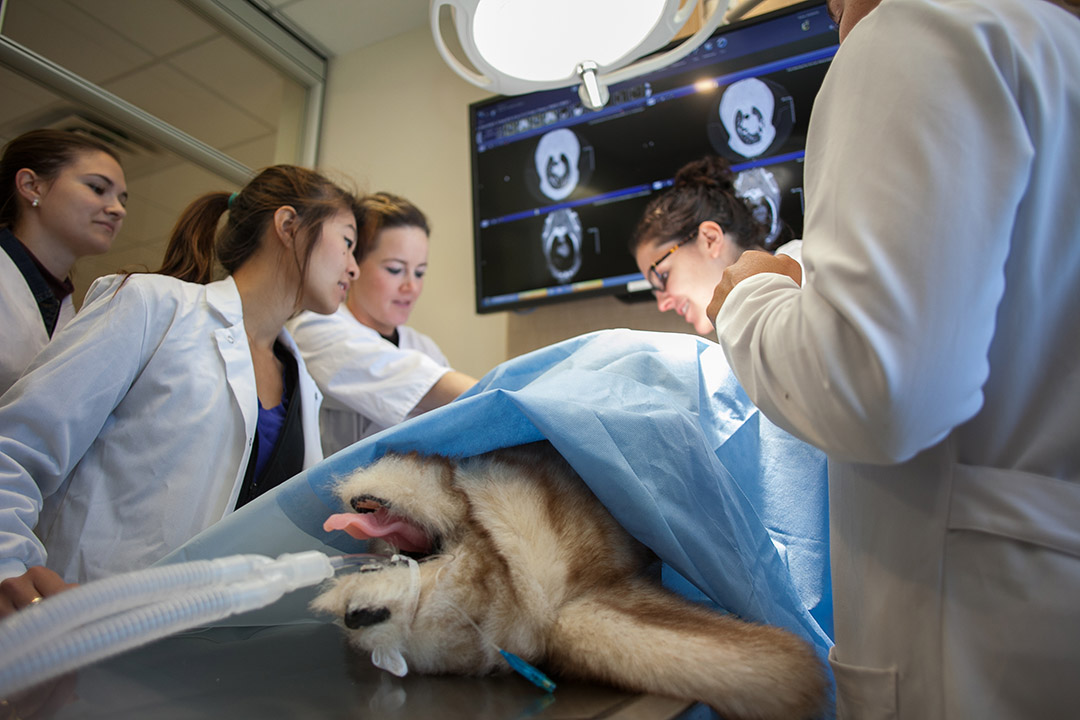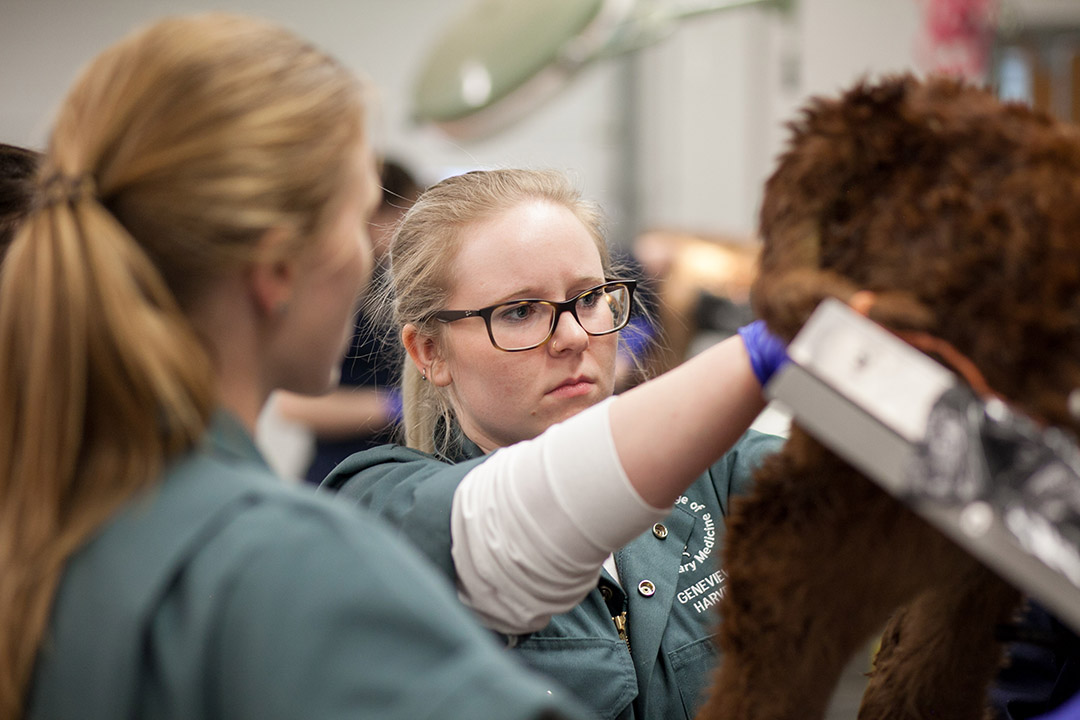
Vet students share tips for acing that admissions interview – and life in vet school
Gaining admission to the Western College of Veterinary Medicine (WCVM) is a highly competitive process, but who better to give advice on how to get into — and through — veterinary school than WCVM vet students themselves?
By WCVM TodayThe following tips were given by students as part of a pre-vet night held at the WCVM this fall.
Interview advice
- Be yourself in the interview; don’t be afraid to say “I don’t know.”
- Check your references — make sure to ask people who really know you and understand your abilities.
- Before your interview, make sure to review your Doctor of Veterinary Medicine (DVM) application. You will be asked about what you wrote — and don’t exaggerate on your application.
- It’s important to have a life outside of school — volunteer work in the community is also very important to the application.
- Seek out leadership experience not related to animals
- Look for volunteer opportunities, and it’s not always necessary to be animal-related. For example, volunteering with a peer-assisted learning group on campus gave me a chance to develop my communication skills, plus it forced me to review what I knew about the subjects.
- Know what’s going on in the world. Make a habit of reading the news headlines and keep in touch with current events.
- Understand the agriculture industry and aspects of livestock production. Read agriculture-focused news.
- Before you go in the interview room, do a “power stance” and believe in yourself.
- Make sure you understand the difference between animal welfare and animal rights.

Once you’re in veterinary school
- Make sure to eat healthy (including enough servings of fruit and veggies) and stick to regular meals. “If my grandma heard that I was only eating ramen noodles, she would be on the next train here.”
- The first year of vet school is hard because you’re moving away from your support system, plus you have so much information thrown at you, day after day.
- You have to "budget your brain," if that makes sense.
- First year: “I knew what I knew, but I had to make up for a lot.”
- Second year: you have to get in habit of studying because of the large number of tests throughout the entire year.
- Third year: it’s a challenging year.
- Fourth year: it’s mentally exhausting because of continuous rotations.
- WCVM does a lot to help students cope. For example, we only have tests on certain days. During finals, our exams are scheduled for every other day. Wednesday afternoons are free time.
- Know that you’ve got a family here — we’re all in the same boat, and we support each other. It’s a big family, and we lean on each other for support.
- It’s okay to take a day off — we all need a day away from school.
For questions about applying to the WCVM, visit the admissions website, or email wcvm.admissions@usask.ca.
